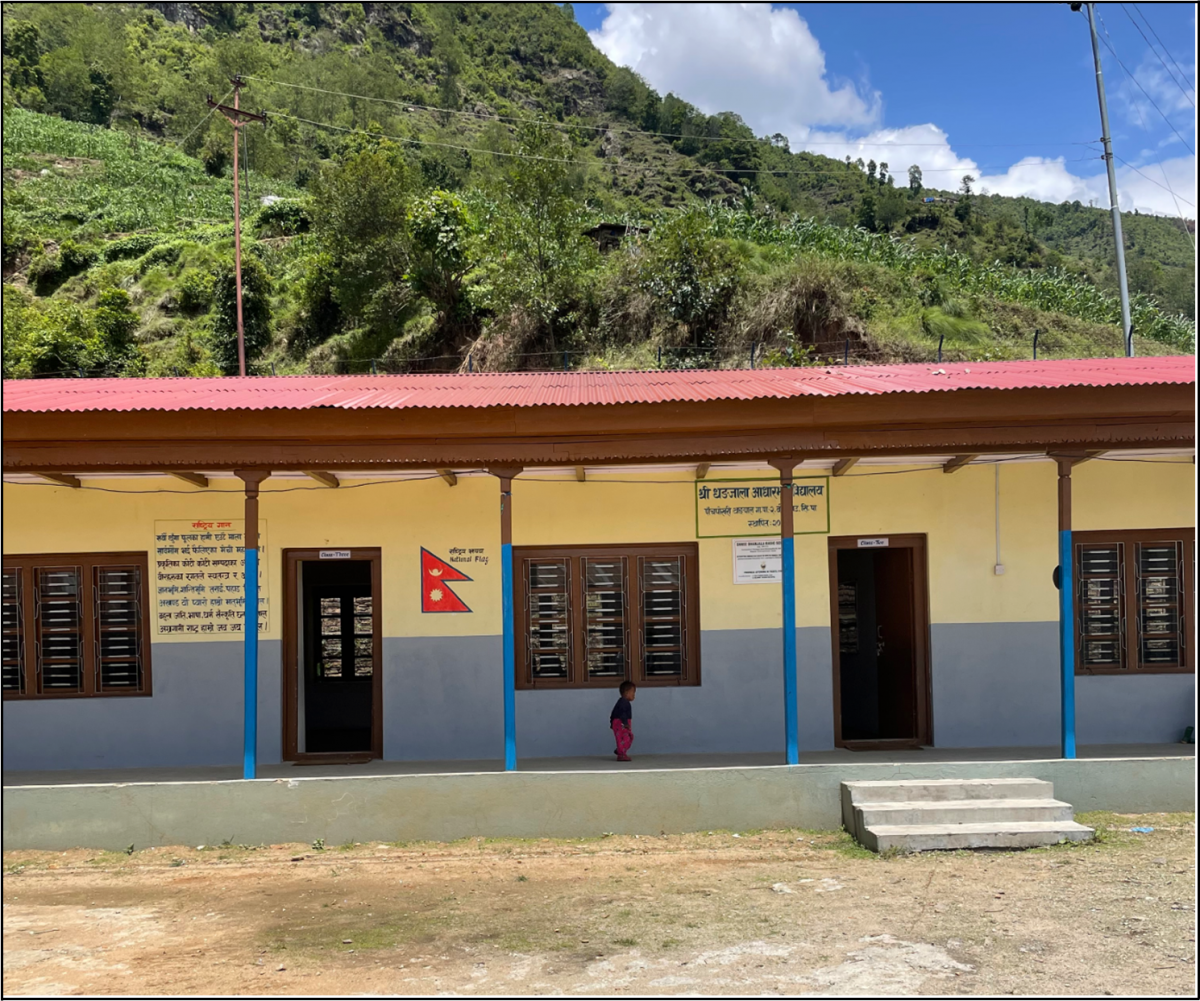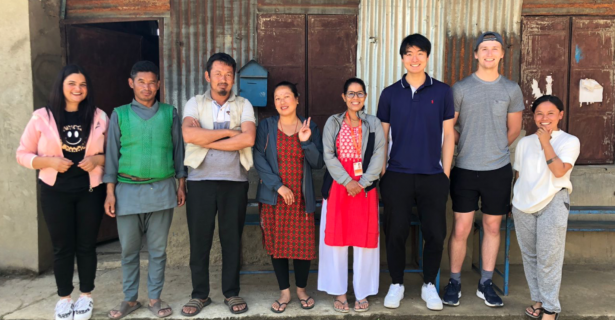During our stay in Bolgaun, Nepal, we had the opportunity to observe operations at a PHASE clinic. The clinic was built around five years ago when PHASE first started working with this community. We learned about the clinic’s importance to the community members, as the closest government health center is about two hours away from Bolgaun by foot.
The clinic is supplied with first-aid kits, antibiotic medication, and some vaccines. Muna Sharma and Prema Kesi serve the roles of health supervisor and auxiliary nurse midwife respectively. These women explained to us the experience of working in the clinic. The operational hours are between 10:00 am to 3:00 pm every day, and the clinic serves the residents of Bolgaun as well as those of the surrounding communities. We learned that the most common problems seen in the clinic are gastritis, diarrhea, and upper respiratory infection.
The PHASE team plans community outreach events to promote good health and sanitation. We observed a meeting directed by Muna at a community center. She explained best practices related to sanitation and hygiene, assessed the nutritional status of the children, and brought the children back to the clinic to give them routine vaccines.
It was encouraging to see the dedication of the clinic staff towards the community. Although the clinic has official hours, the staff open their home to patients for walk-in visits after hours. We were in the house on two such occasions. One time, a young girl arrived with complaints of severe stomach pain. Muna and Prema suspected that the girl may have had appendicitis, and they arranged for her transport to Kathmandu in case surgery was required. The women explained that, before PHASE began working in Bolgaun, cases like these may have been neglected at the expense of the patient’s health and safety. We came to understand the value of PHASE’s work in this community, as the residents could depend on the staff for both routine care and medical emergencies.
In addition to healthcare, PHASE also works to enhance education in the community. We visited a school just outside of Bolgaun for children in grades one through five. The school consists of two buildings, which are shown in the images below. PHASE funded the reconstruction of one building, which is now much more structurally sound and visually appealing. PHASE is currently working to fund the reconstruction of the second building, which will enable the school to expand to include children through grade six.
Given that the upper school is three hours from Bolgaun by foot, this expansion would make a big difference for the future children in this grade!
It was rewarding to learn how our fundraising efforts at Tufts for Health Equity contribute to improved healthcare and educational opportunities in Bolgaun and similar communities. By gaining an understanding of PHASE’s work and sharing our findings, we hope to motivate people at home to identify and help to address issues related to health inequity.

Caption: The new school building.

